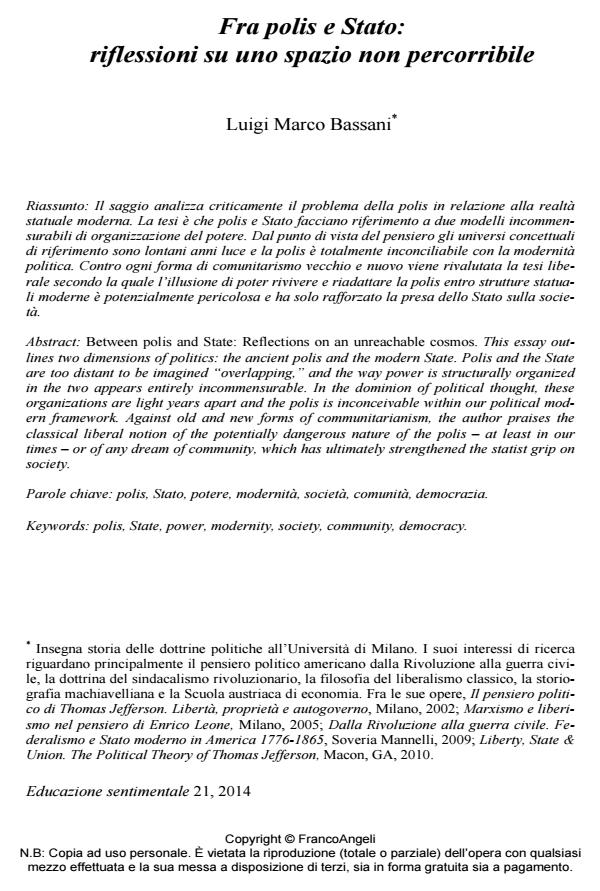Fra polis e Stato: riflessioni su uno spazio non percorribile
Journal title EDUCAZIONE SENTIMENTALE
Author/s Luigi Marco Bassani
Publishing Year 2014 Issue 2014/21
Language Italian Pages 16 P. 61-76 File size 670 KB
DOI 10.3280/EDS2014-021006
DOI is like a bar code for intellectual property: to have more infomation
click here
Below, you can see the article first page
If you want to buy this article in PDF format, you can do it, following the instructions to buy download credits

FrancoAngeli is member of Publishers International Linking Association, Inc (PILA), a not-for-profit association which run the CrossRef service enabling links to and from online scholarly content.
Between polis and State: Reflections on an unreachable cosmos. This essay outlines two dimensions of politics: the ancient polis and the modern State. Polis and the State are too distant to be imagined overlapping, and the way power is structurally organized in the two appears entirely incommensurable. In the dominion of political thought, these organizations are light years apart and the polis is inconceivable within our political modern framework. Against old and new forms of communitarianism, the author praises the classical liberal notion of the potentially dangerous nature of the polis - at least in our times - or of any dream of community, which has ultimately strengthened the statist grip on society.
Keywords: Polis, State, power, modernity, society, community, democracy
Luigi Marco Bassani, Fra polis e Stato: riflessioni su uno spazio non percorribile in "EDUCAZIONE SENTIMENTALE" 21/2014, pp 61-76, DOI: 10.3280/EDS2014-021006